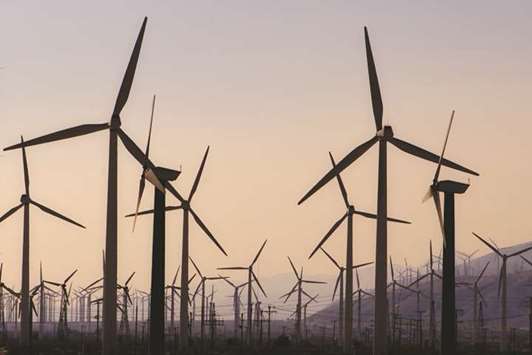Last month, Argentina held an auction for $3bn worth of renewable energy projects that attracted foreign bidders from as far away as the US, Spain and Italy. None of them won, after prices fell so low they were scared off.
Instead, Argentine companies including YPF Energia Electrica SA, Central Puerto SA and Neoen SAS snapped up all of the contracts to sell power from 66 new power plants, with bids for down about 31% for wind power and 27% for solar.
The shut-out of some of the world’s major renewable-energy developers – from Spain’s Acciona SA and Italy’s Enel Green Power SpA to AES Corp of the US – underscores a lingering hesitation over investing in Argentina. The country has a struggling economy, a history of nationalising foreign-owned companies and a credit rating comparable to Sri Lanka. That all adds to the risk of working there, and threatens to keep big international companies out of a market that’s pushing hard to accelerate solar and wind installations.
“Local players have a different perception of risk from the big, international players,” said Ana Verena Lima, a Bloomberg New Energy Finance analyst in Sao Paulo. “Prices in the auctions are low given the Argentinian market’s maturity and the uncertainties that still surround the country.”
Argentina’s struggling economy has contracted in three of the past five years, but is showing signs of recovery since President Mauricio Macri took office at the end of 2015. Gross domestic product is expected to increase 2.8% this year and more than 3% next year. While the country’s credit rating was raised in October by S&P Global Ratings, it’s still four levels below investment grade. That puts it in line with emerging markets like Jordan, Kenya and Senegal.
That’s giving local companies some confidence even as clean-energy investors abroad remain wary. The average price for the winning bids was $41.23 a megawatt-hour for wind, compared with $59.40 for a similar auction in October 2016, and $43.46 for solar, down from $59.70 a megawatt-hour.
By almost any measure, the November auction was a success for Argentina and for its local developers. The new power plants will add 1,409 megawatts of clean energy to Argentina’s grid. That’s going to help Macri reach his target of getting 20% of the country’s power from renewable sources by 2025.
Demand was so strong the government is already planning another one, which is expected in the next several weeks. Participants in the November auction were proposing 9,400 megawatts of power plants, almost eight times more than the 1,200 megawatts of new capacity the country was initially seeking. No date has been set for the next round, which will add another 600 megawatts of clean power to Argentina’s electric system
However, the prices will be even lower. In Argentina’s power auctions, regulators set a ceiling and participants bid down the rates at which they’re willing to sell electricity, with the lowest offers winning long-term contracts to deliver energy. The ceiling in the next round will be $40.27 a megawatt-hour for wind and $41.76 for solar.
That’s raising concern that prices have declined so far that winning projects from the recent auction may not be economically viable. Auction winners that fail to complete their projects may undermine confidence in the nascent industry. In Brazil, energy companies have paid fines and returned contracts to the government after a steep recession drove down the currency and made it hard to line up financing.
Javier Giorgio, president of AES’s Andes unit, which includes Argentina, Chile and Colombia, said Argentina should ensure that the winning power plants end up getting built.
“Argentina’s power-market rates of return are declining and the competition is increasingly strong,” Giorgio said. “Prices have fallen from previous auctions, and the average was much lower than the reference prices established by the government for each source of power.”
That concern was echoed by Argentina-based companies, including some backed by international investors that also failed to win any contracts in the auction.
“We bid with 560 megawatts of solar projects in the auction and lost all of them,” said Doris Capurro, CEO at Luft Energia, an Argentinian developer that partners with the American private equity firm Castlelake LP. “We decided not to lower prices to levels that would jeopardise our capacity to get financing and build the projects.”
Luft is now focused on selling energy directly to big consumers, which need to procure clean energy to comply with another of Macri’s policies that requires industrial users to get 8% of their power from renewable sources in 2017 and 20% by 2025.

The shut-out of some of the world’s major renewable-energy developers u2013 from Spain’s Acciona and Italy’s Enel Green Power to AES Corp of the US u2013 underscores a lingering hesitation over investing in Argentina
